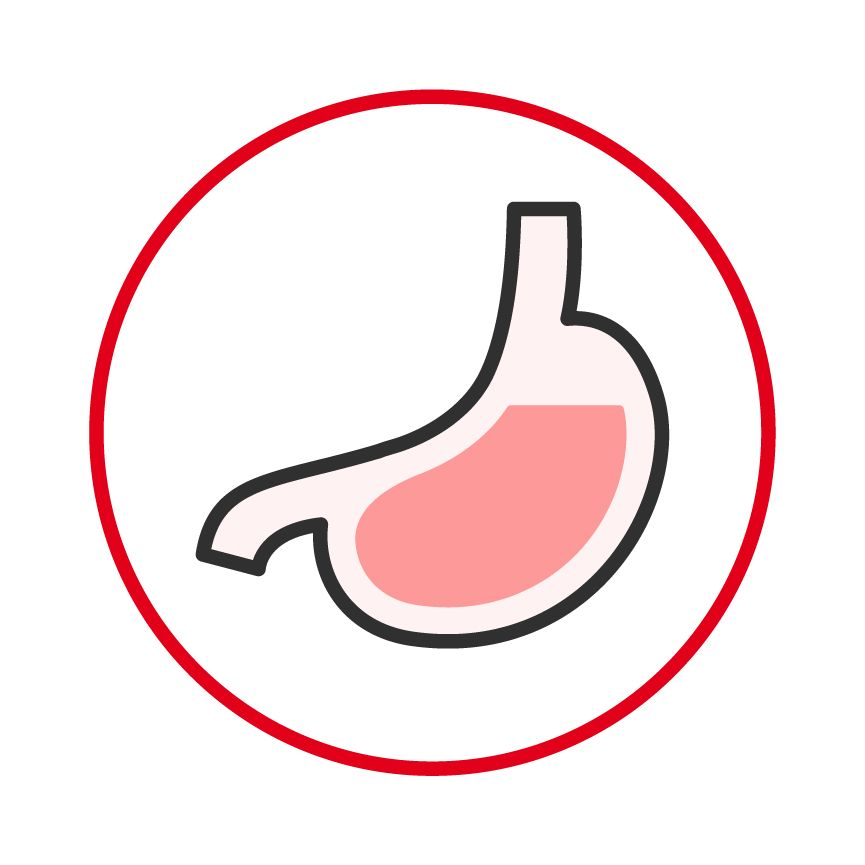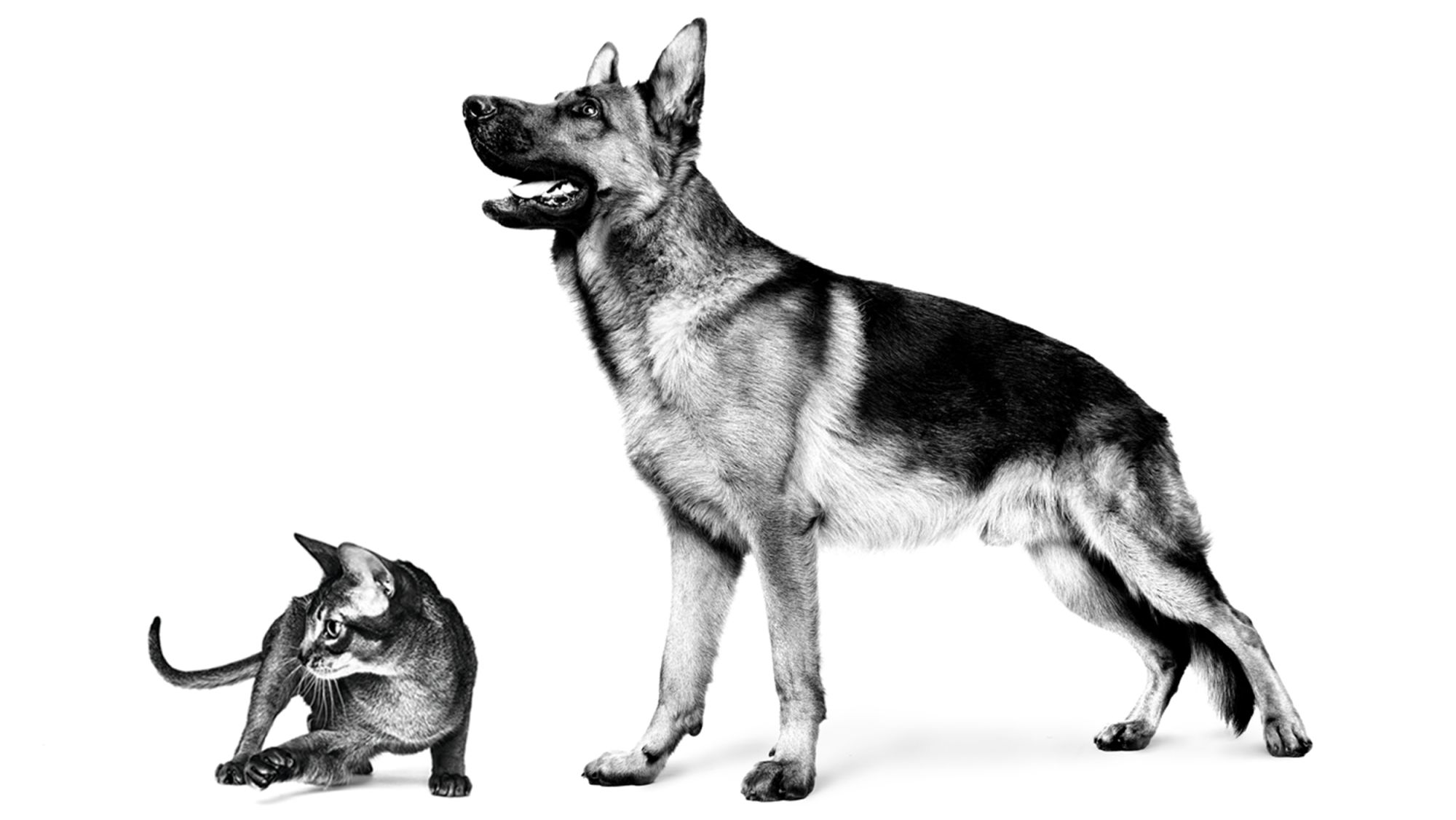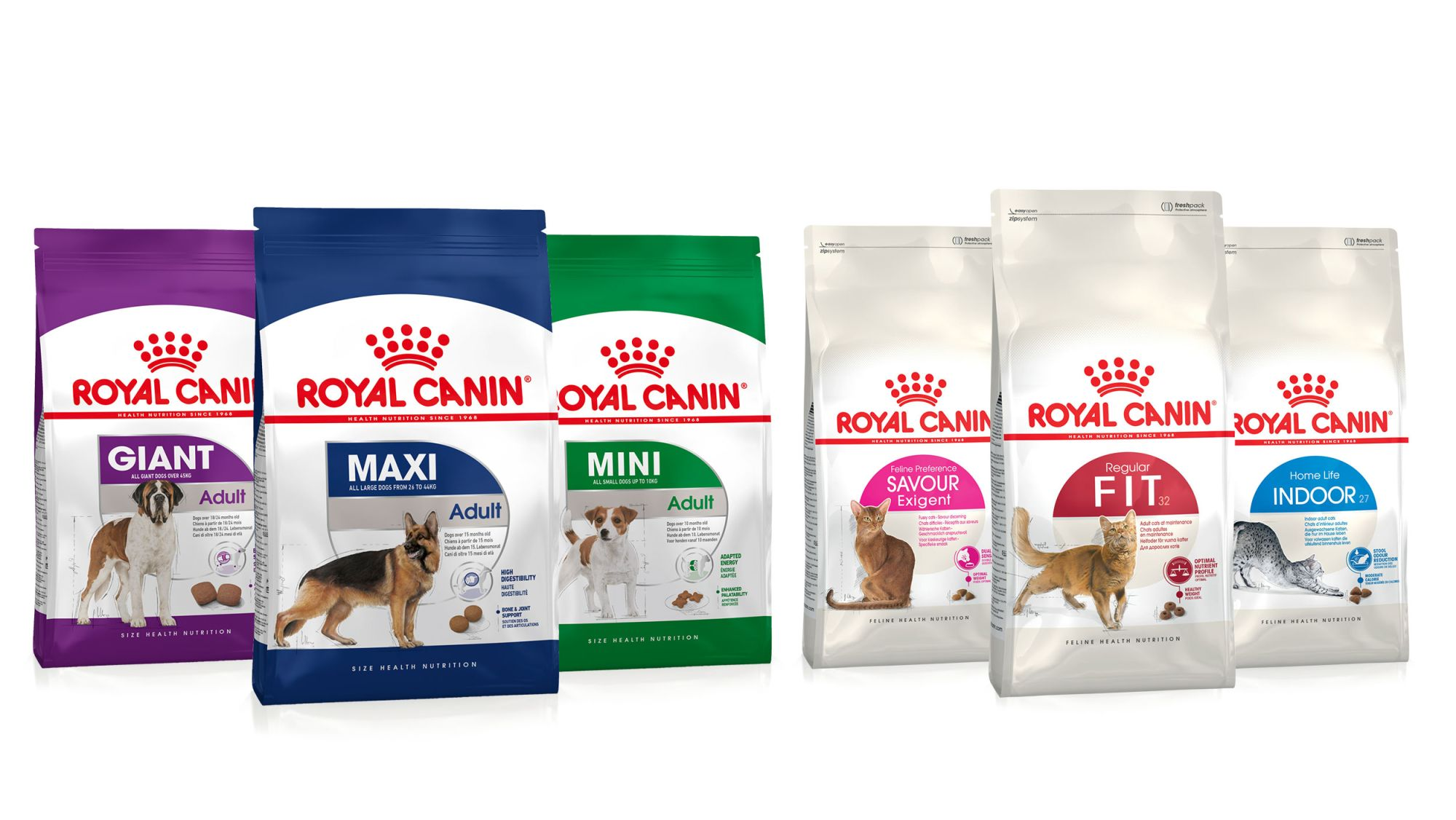Keeping your dog's digestive system healthy
Article
Smell
Dogs have a far more sensitive sense of smell than humans or cats, which affects how they react to the food offered to them.
Taste
Dogs don’t have a refined sense of taste, however. While humans have around 9,000 taste buds, dogs only have around 1,700.1 Dogs do not choose their food for the taste, but instead according to smell.
Chewing
Dogs have powerful jaws and teeth evolved to cut, tear and grind their food. Compared to humans, who chew their food at length, dogs often do very little chewing at all. Dogs also have fewer digestive enzymes in their saliva, which results in no pre-digestion.
Intestines
Transit in the large intestine is very slow, despite being short in length (20 to 80 cm). Quantity and diversity of intestinal flora are less than in humans, which means varied diets don't suit dogs. The length of the small intestine varies from 2 and 6 meters, depending on the dog's size, and duration of transit is just 2 hours.

Stomach
A dog has a very large stomach volume, reaching up to 8 litres in extra large breeds, so they are well adapted for large meals. The acidity of their stomach is also much greater, which aids the digestion of bones and helps fight against harmful bacteria.
Eating time
Dogs often eat faster than humans, and it's important to ensure that your dog chews. Ways to do this include adapted kibble shapes, tailored kibble sizes and special feeding bowls or puzzles.
Diet
Humans are known to be omnivores, and it’s recommended that 60-65% of our diet is dry carbohydrates. Dogs are also omnivorous but can survive with low levels of carbohydrates. Instead, they typically need a more protein-rich diet than humans.
As well as the above, a significant difference is how long it takes for dogs to digest food. Humans may take up to five days to digest food, but for dogs it takes just 12-30 hours for food to move through their intestines.2
A closer look at a dog’s digestive system
As with other mammals, your dog’s digestive system breaks down food and absorbs nutrients. The main organ in this process is the small intestine. It has a very large surface area and cells designed to absorb nutrients effectively. The intestinal tract also holds microbiota – beneficial bacteria that help a dog’s gut to stay healthy. And immune cells that help to protect your dog by reacting to harmful bacteria or other pathogens.
Important nutrients for your dog’s digestion
For your dog to be healthy overall, they need a healthy digestive system and their diet is a key contributing factor. It’s important to feed them food that’s not only appropriate for dogs but for their size, breed, age, lifestyle and any sensitivities they have.
Your vet can advise on the best diet for your particular dog’s needs, but let’s look at the key nutrients and factors that are important for every dog’s digestive system.
Protein
Protein aids cell growth but must be high-quality and highly digestible to be beneficial and help prevent digestive problems in dogs.
Fibre
Fibre helps your dog to feel full, moves food through their digestive system and improves their stool quality. It needs to be in the right balance, though, to avoid causing strain on their gut.
Prebiotics
Prebiotics are a type of fibre that encourage the growth of microbiota in your dog’s gut that help to keep it healthy.
Carbohydrates
Carbohydrates give your dog energy but, like proteins, need to be highly digestible.
Fats
Fat can help to manage digestive sensitivities. A high-fat diet, for example, can provide the energy your dog needs in a smaller quantity of food. A lower fat diet can help if your dog is sensitive to fat.
Understanding dog digestive issues
Many dogs have a robust digestive system, but there are some common digestive issues. And, sometimes, what seems to be a problem with digestion can be a sign of other health issues. It’s important to get used to what’s normal for your dog, especially in terms of bowel movements, so you can quickly identify when something may be wrong.
Signs of digestive problems in dogs
Diarrhoea
If your dog has diarrhoea, they’ll begin to move their bowels more frequently and may have looser or even liquid-like stools. It can be caused by a variety of factors, including an infection, an allergy, parasites or them eating something that disagrees with them.
Constipation
If your dog’s stools are hard or dry and they move their bowels infrequently, or strain when attempting to do so, they may be constipated. This can have a range of causes, including their diet, a change of environment, trauma and underlying health problems.
Vomiting and regurgitation
Regurgitating typically happens soon after your dog’s swallowed something and is when they bring solid, undigested food back up. Vomiting is when your dog brings up food and liquid that may be partially digested. Both can be a sign of your dog not digesting food properly or a problem with the stomach itself.
Other things to look out for
If your dog has digestive issues, they may also:
- Lose weight.
- Have a dry, dull, brittle coat.
- Have frequent flatulence.
- Appear to have abdominal discomfort.
- Show changes in their behaviour, eating habits and appetite.
Ask your vet
If you think your dog has a digestive problem, it’s really important to consult your vet. They’ll be able to examine them to check the potential causes of the issues. And then advise you on any changes needed to your dog’s diet, treatments or lifestyle to help them feel more comfortable.
Choosing the right foods for your pet's healthy digestive system
Whether you think your dog has digestive problem or not, it’s important to consult your vet for advice on the best food for them. There are many highly digestible dog foods available to support the specific needs of each pet – from older dogs with digestive issues to growing puppies with sensitive stomachs.
1, 2 Everything you need to know about the role played by Nutrients for the health of Cats & Dogs, Pr Dominique Grandjean, 2006, Royal Canin SAS
Related Articles

Royal Canin’s approach to nutrition
At Royal Canin, we focus our efforts on understanding the unique needs of cats and dogs. Everything we do is designed to create precise nutritional formulas tailored to support their continued health and wellbeing. Find out more about our scientific approach to pet nutrition.

Browse our product ranges
Each Royal Canin formula has been created to deliver nutrition tailored to your pet’s needs depending on their breed, age, lifestyle or sensitivities. Browse the full range products and discover how we can help your pet enjoy the best health possible.
Like & share this page